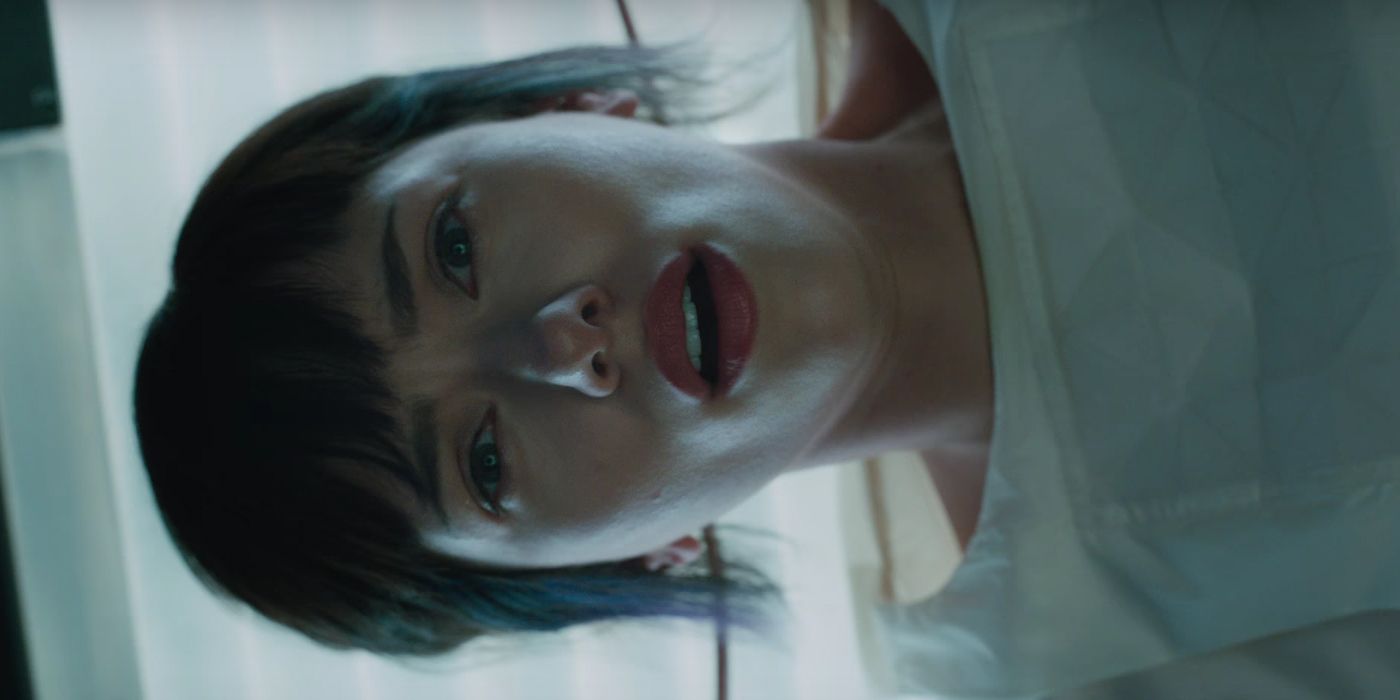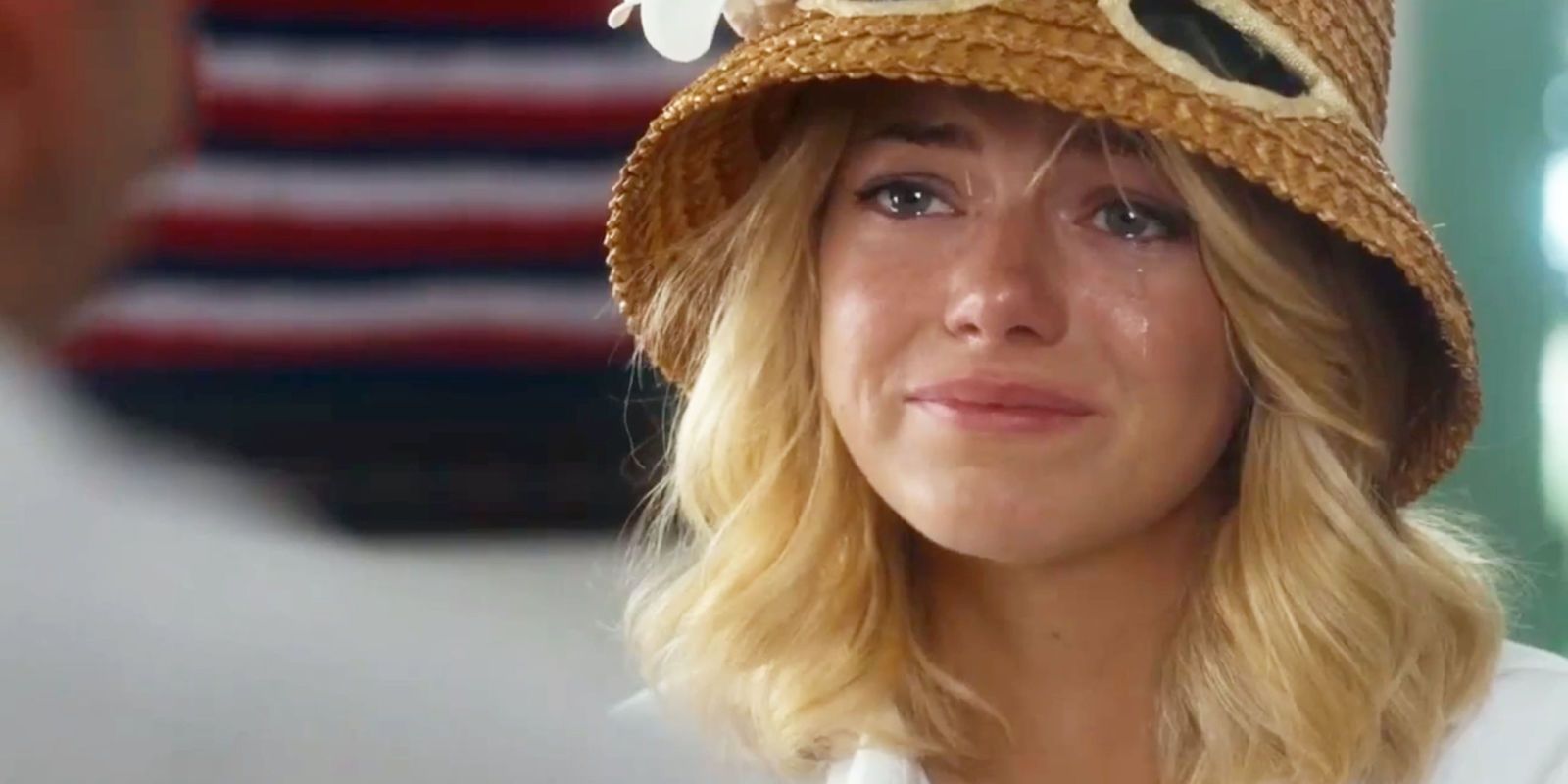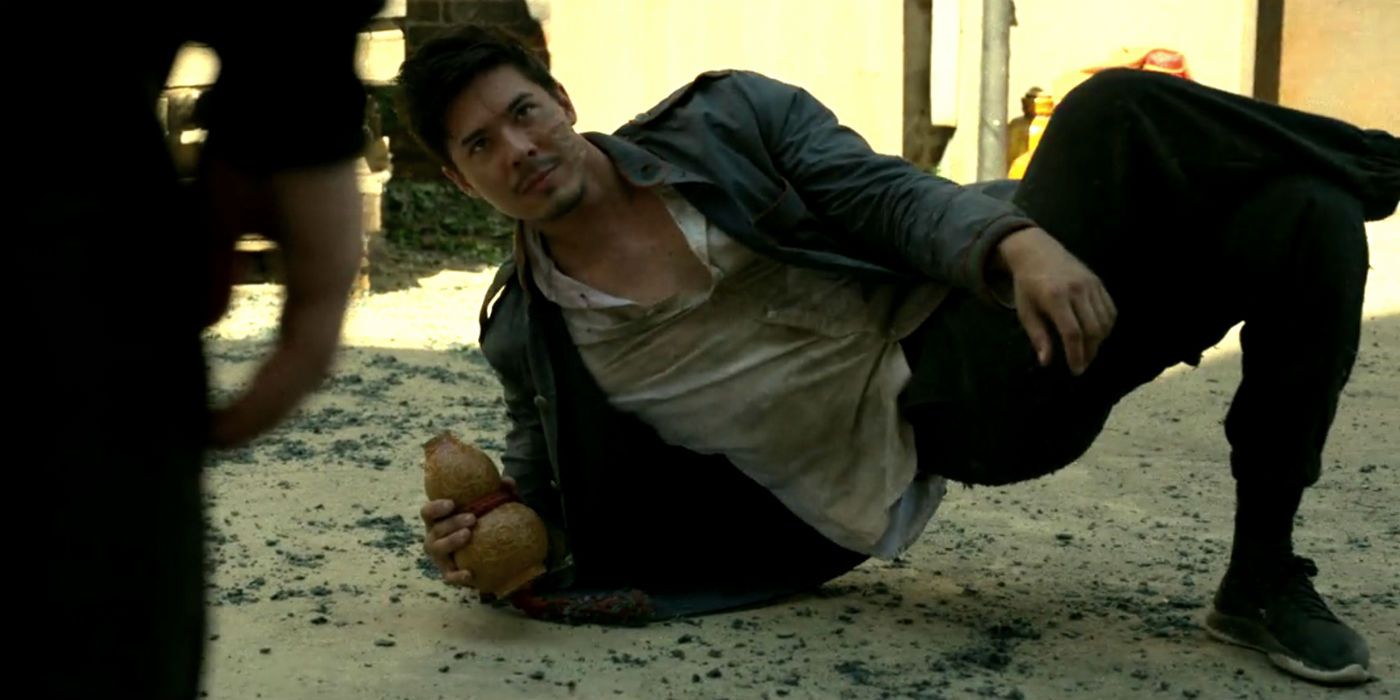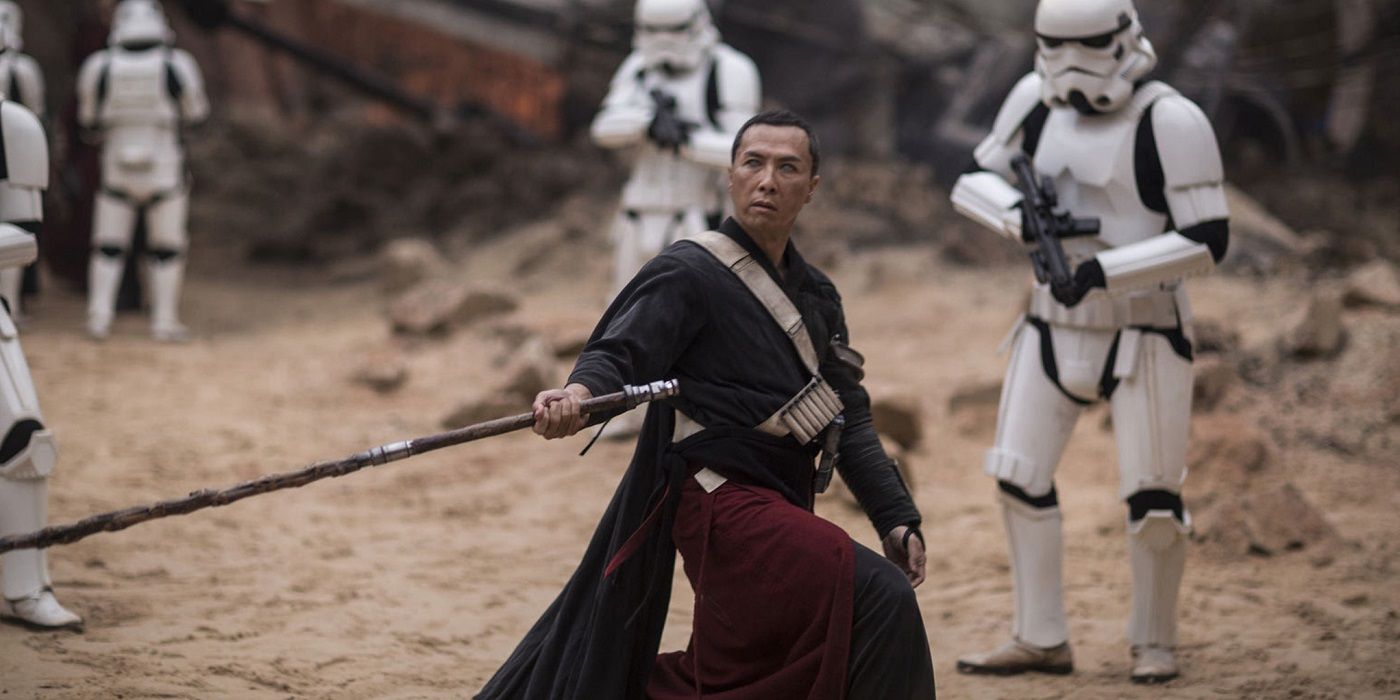The conversation around the American live-action remake of the groundbreaking anime Ghost in the Shell has been fraught since the project’s greenlight. After Scarlett Johansson was cast in the lead role of Major Motoko Kusanagi, headlines immediately sprung up discussing the whitewashing of one of the most iconic characters in Japanese modern pop culture. It’s a shadow from which the film has been unable to escape, and the backlash to that casting decision - along with mixed reviews and a confusing marketing campaign - led to the $110m project grossing a disappointing $19m in its opening week in the USA, debuting behind the continuing domination of Disney’s Beauty and the Beast and the opening weekend of Dreamworks’ latest film Boss Baby.
It's too early to write the project off as a total flop - ironically, the Asian market may save it - but it's certainly an underwhelming first week for a film that was intended as a demonstration of its leading lady's A-List prowess. The blame for its weak numbers will be discussed in many a think-piece over the coming weeks, but one fact has become assuredly prominent during this time – the conversation regarding whitewashing can no longer be ignored, whether studios like it or not. As Hollywood further embraces intellectual properties from Japan, including the upcoming Netflix film Death Note and the much-delayed adaptation of Akira, the issue of how the industry treats Asian culture and actors will be on the minds of many.
Whitewashing is a problem that has plagued Hollywood since its conception. Indeed, yellowface - the practice of white performers donning make-up to play East Asian people, similar to blackface - is a centuries old issue that started on the stage as early as the 1700s. Productions such as Madame Butterfly would see white singers tape their eyes back and paint their skin yellow to pass as an exaggerated caricature of an Asian person. This became common practice once film became the dominant medium of pop culture: Mary Pickford played Cio-Cio San in a silent version of Madame Butterfly, Myrna Loy, best known as one half of Nick and Nora, made a career out of playing Asian characters at the beginning of her career, and even major icons like Katharine Hepburn and Lon Chaney donned the make-up to play Asians, most often in deeply unsympathetic roles that embodied the worst of racist stereotyping.
That's not to say that there weren't Asian stars of the era. Notably, Anna May Wong became the first Chinese-American movie star, acting alongside Marlene Dietrich and Douglas Fairbanks. Her roles were often crass stereotypes, something she did not enjoy, and she never gained leading lady status in the same way her white counterparts did. When a major project featuring an Asian ensemble did appear - a big-budget adaptation of Pearl S Buck's The Good Earth - Wong fought tooth and nail for the lead role, but was passed over because the Hays Code (the censorship board of the time) prohibited interracial kissing on-screen, and since a white man (Paul Muni) had already been cast in the romantic role, Wong would not suffice. She was offered the role of the villain, the only non-sympathetic part in the story, and turned it down. Luise Rainer, the white woman who won the role over May, ended up winning an Oscar for her performance. From its earliest days, Hollywood prized Asian stories and their culture – just not with Asian people involved.
It took a shockingly long time for the practice of yellowface to die out in Hollywood - The popular Charlie Chan detective serials still hired white men for the eponymous lead, the Fu Manchu villain trope became commonplace from the 30s onwards, and everyone remembers the cringe-worthy character of Mr Yunioshi from Breakfast at Tiffany's, played by Mickey Rooney with buck-teeth, pulled-back eyes and a staggeringly racist accent that even white audiences of the 1960s found grotesque. Lesser known examples include Linda Hunt’s Oscar winning performance as a Japanese man in 1982’s The Year of Living Dangerously, David Carradine as Kwai Chang Caine in Kung Fu: The Legend Continues, and various actors in Cloud Atlas, which featured a variety of race-bending roles. Regardless of how earnest or skilled the performance itself is, it cannot and should not be separated from the very act of putting on make-up and affecting specific gestures to imitate a person of a different race. As noted by actress Constance Wu (Fresh Off the Boat) on Twitter, "It's like [a] way to reduce race to mere phys[ical] appearance as opposed to, say, culture, social experience, identity, history..."
Whitewashing isn’t always so blatant in its racism. The Scarlett Johansson example related to Ghost in the Shell is part of a more subtle form of cultural coverup, wherein Asian characters are re-imagined as white with little to no explanation. In Cameron Crowe's 2015 film Aloha, the character of Allison Ng is a Hawaiian woman who is highly proud of her mixed ancestry, being part Chinese and Native Hawaiian. She is played by Emma Stone. The Martian features a Korean character named Mindy Park, depicted in the film by Mackenzie Davis. Tilda Swinton infamously took over the role of The Ancient One in Marvel's Doctor Strange. None of these roles featured the sort of make-up or caricature performances of the films mentioned earlier, but they still participate in the whitewashing process. By having white actors play explicitly Asian roles, the cycle continues anew, further removing Asian actors from major opportunities in an industry where they are already criminally under-represented.
Stories of Asian culture have always been popular in Hollywood, be they the Charlie Chan stories, kung fu dramas or anime adaptations, and audiences have hungered for them. Yet so many of them remain devoid of Asian representation front and centre, with Asian actors often reduced to minor supporting roles (Ghost in the Shell suffers from this problem). Now, manga is back in the forefront of Hollywood’s imagination, as the hunt for the next studio tent-pole intensifies. Akira, which has sat in pre-production hell for close to a decade, has several potential directors floating around it for a major budget American project (none of them are of Asian descent); the Death Note film will premiere on Netflix this year, with a primarily white cast (although Lakeith Stanfield, an African American actor, will play L); Robert Rodriguez’s adaptation of the manga Battle Angel Alita, scheduled for a July 2018 release, has no Asian actors in its major roles. Stories of explicit Asian culture and ideas are seen as the perfect canvases for whiteness, stripped of everything that makes them unique in order to appeal to an archaic notion of universality. The problem continues, and the reasons for it remain the same outdated notions that kept Asian actors excluded from Hollywood in the first place.
Jennifer de Guzman's article in Teen Vogue discussing the whitewashing problem notes the ways in white "white filmmakers don’t think of Asian people as being 'relatable.' We’re what is called 'the Other' in cultural theory. We’re different. We’re 'they,' not 'we'; we’re exotic". The continuing model of universal appeal by Hollywood's standards is that whiteness appeals to all audiences while stories of other races will only appeal to those specific races (similar assumptions are applied along lines of gender). This is utterly dehumanizing but also completely false, and diminishes the humanity of Asian people. To starve millions of people of complex, empathetic and varied representation in pop culture is to deny their role in our society. As famously said by Marian Wright Edelman, "you cannot be what you cannot see".
Producers and other Hollywood players often dismiss these claims and try to justify their decisions with cold hard economics. There are no major Asian American leading stars, they say, so they cannot trust a $100m blockbuster to an untested talent. Never mind that Hollywood never gives actors like John Cho or Constance Wu or Lewis Tan a chance to gain that major status in order to progress to A List levels, it’s also another assumed fact that’s become evidently false in recent years. The model of the A-List star who can open a major film to box office success off the basis of their name has started to die off in the age of expanded universes and billion-dollar franchises, where the property or studio name matters more than the actors below the title. Chris Pratt may be charming and talented, but audiences didn’t flock to see Jurassic World or Guardians of the Galaxy based off the perceived star power of the guy from Parks and Recreation.
By this new normal, it should be logical for studios to take chances on new talents like Wu or Tan, and yet that isn’t happening, even as the economics clearly don’t back up the argument they cling to. Even in an age where the Chinese box office is the prized jewel of Hollywood’s efforts, with films tailored to fit to their tastes, white stars remain at the front and centre, seemingly ignorant to said audiences’ growing impatience with the practice of shoving Asian actors into small background cameos to appease them (they refer to these actors as ‘flower vases’). It will be a foolish executive who looks at Ghost in the Shell’s opening weekend numbers and doesn’t at least consider the possibility that whitewashing negatively impacted them. Indeed, it has become undeniable, as a Paramount executive recently admitted the controversy hurt the film at the box office.
Progress in Hollywood tends to be disappointingly incremental, so any gains made by the conversations surrounding Ghost in the Shell's whitewashing will probably take a long time to translate into tangible results. The industry would do well to look to TV, with shows like Fresh Off the Boat (the first sitcom about an Asian-American family since 1995's All-American Girl), Elementary (featuring Lucy Liu as Joan Watson), and Into the Badlands (starring Daniel Wu in the lead). They could embrace the audience enthusiasm for actors like Lewis Tan in the otherwise dismissed Iron Fist, Donnie Yen and Jiang Wen in Rogue One: A Star Wars Story, and the upcoming inclusion of Kelly-Marie Tran in Star Wars: The Last Jedi. It would certainly greatly benefit them to be reminded that in 2016, Asian American audiences were the most frequent moviegoers in America. Hollywood insists that audiences do not care about Asian stories if they are told with Asian people, but it's clear that those audiences are hungry for change. Time and time again, the message has been clear; let’s hope studios are finally ready to listen. Paramount have admitted there is a problem, but more action must be taken.






